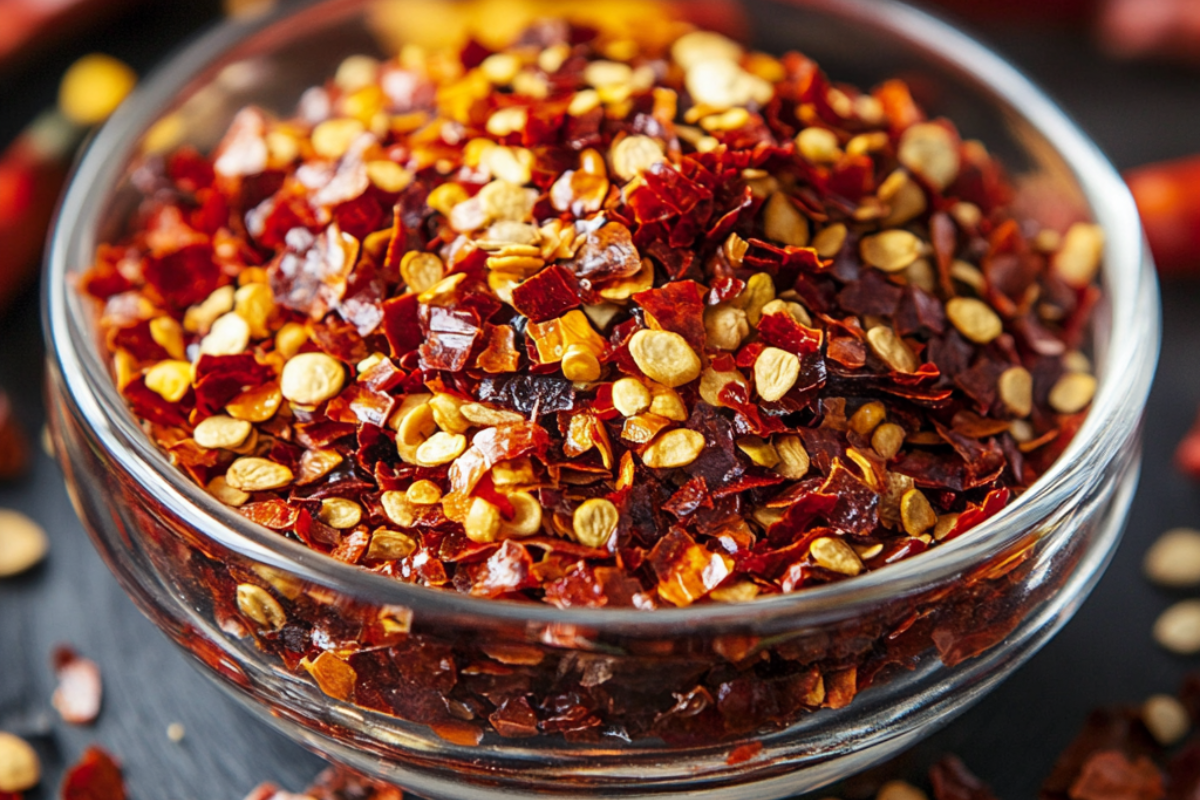If you’ve ever wondered, are red chilli flakes and red pepper flakes the same, you’re not alone. While they may seem similar at first glance, these two spicy seasonings have important differences in heat, flavor, and culinary uses. Understanding these distinctions will help you choose the right one for your recipes.
What Are Red Chilli Flakes?
Red chili chili are made from crushed and dried chili, typically from varieties such as Cayenne or Fresno. They are known for their intense heat and are commonly used in Italian, Mexican, and Asian cuisines. If you’re a fan of pyou’reypizza, you’ve probably put some red chili on your slice for an added kick.
Popular Uses:
- Spicing up pizzas and pasta sauces
- Stirring into curries or stews
- Adding heat to marinades
For those interested in incorporating red chili flakes into other spicy dishes, check out this article on red pepper flakes and chili flakes.
What Are Red Pepper Flakes?
On the other hand, red pepper flakes are made from a blend of several different types of peppers, such as cayenne, bell peppers, and jalapeños. This blend results in a more nuanced heat, making red pepper flakes a versatile choice for various recipes.
Popular Uses:
- Seasoning BBQ rubs
- Sprinkling over baked dishes
- Enhancing the flavor of soups and stews
Key DiffCriticalnces Between Red Chilli Flakes and Red Pepper Flakes
While both add heat to dishes, their differences are important
- Variety: Red chili flakes are made from one type of chili pepper, while red pepper flakes are a mix of different peppers.
- Heat Level: Red chili chili tends to be hotter, scoring higher on the Scoville scale due to the specific peppers used.
- Texture and Flavor: Red pepper flakes often have a coarser texture, and their flavor is more complex due to the blend of peppers.
This guide on red pepper flakes offers further insights into the culinary uses of these flakes in traditional recipes.
Are They Interchangeable?
While you can swap red pepper flakes for red chili chili in some recipes, it’s essential that the heat level of the dish vary. You may need to adjust the quantity based on how spicy you want it.
When to Substitute:
- Either can work for pasta sauces or stir-fries, though you may need to use more red pepper flakes to reach the same level of heat as red chilli flakes.
When Not to Substitute:
- When preparing dishes that rely on high heat, such as certain Italian or Asian dishes, it’s better to stitch with flakes for a more intense flavor.
Health Benefits of Red Chilli Flakes and Red Pepper Flakes
Both types of flakes contain capsaicin, the active compound that gives peppers their spiciness. This compound offers several health benefits, including:
- Boosting metabolism: Capsaicin can help speed up calorie burning.
- Anti-inflammatory properties: Reducing inflammation in the body.
- Heart health: Improving circulation and lowering cholesterol.
For more health tips, you can explore how capsaicin works wonders for your health by checking out other nutritious recipes incorporating flakes.
Frequently Asked Questions (FAQs)
- Can I use red pepper flakes instead of red chili chili pizza?
Yes, but the heat will be milder, so you may need to add more. - Are red chili chili hotter than red pepper flakes?
Red chili flakes are typically hotter due to their single pepper origin. - Can I make red chili chili at home?
Absolutely! Just dry and crush your favorite hot peppers like cayenne or Fresno peppers. - How do I store chili achiliper flakes?
To maintain their potency for up to a year, store them in an airtight container in a cool, dark place.
Though red chili flakes and red pepper flakes seem interchangeable, they each offer distinct flavors and heat levels. Understanding these differences can help you decide which one to use in your cooking. Whether you’re looking for your heat or a more complex flavor profile, both are essential additions to your spice cabinet.
